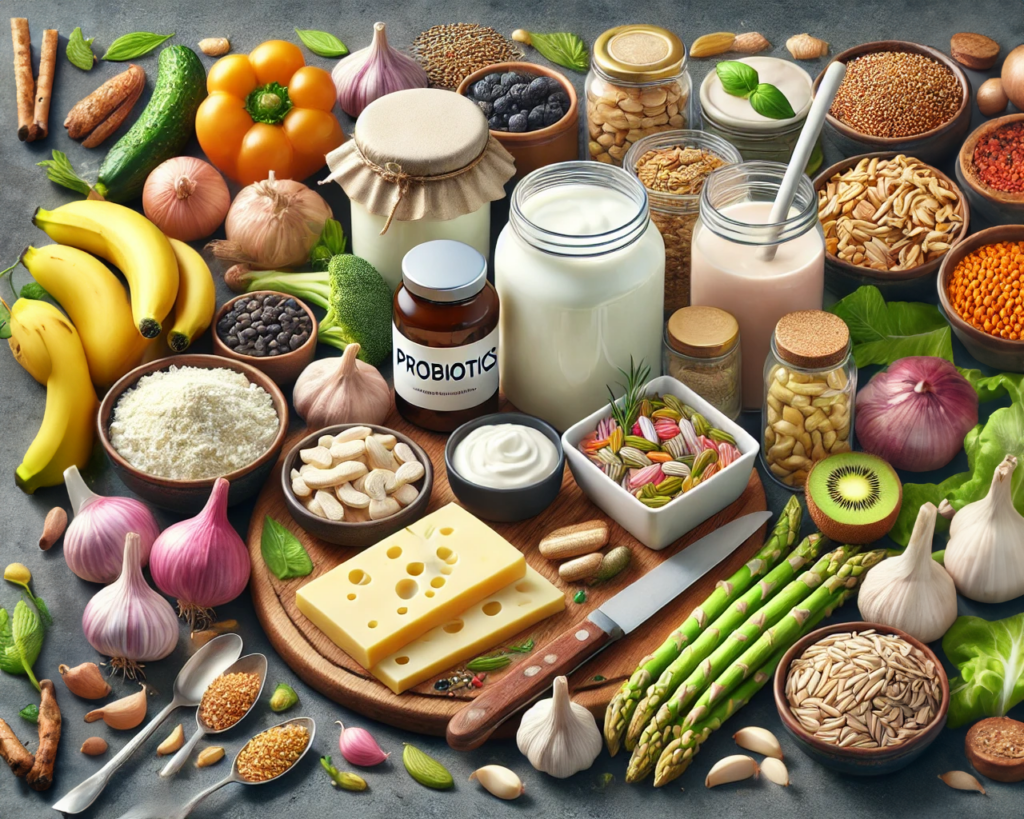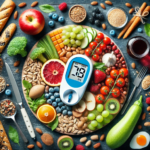Probiotics vs. Prebiotics
Both probiotics and prebiotics are crucial for maintaining gut health, but they play very different roles. Probiotics are live beneficial bacteria that contribute to a healthy gut microbiome. These microorganisms are consumed as live cultures and they help with digestion, nutrient absorption, and immune function, promoting overall well-being.
Prebiotics, on the other hand, are non-digestible fibers that serve as food for these beneficial bacteria. By nourishing the microbiome, prebiotics help ensure a thriving, balanced gut environment. Understanding how these two elements work together can help you to make dietary choices to enhance your digestive health and support your body’s natural processes.
🤔 Why you need to know
Because sometimes, you may want to jumpstart your microbiome. For example, after a lengthy course of antibiotics. Understanding the difference between probiotics and prebiotics can help you optimize your gut health. Here are some practical ways to incorporate both into your diet:
Probiotics
Benefits of Probiotics:
- Improving digestion and nutrient absorption
- Enhancing immune function
- Reducing inflammation and potentially alleviating conditions like irritable bowel syndrome (IBS)
- Supporting mental health by influencing the gut-brain axis
Food Sources:
- Yogurt
- Kefir
- Sauerkraut
- Kimchi
Probiotic Supplements:
When it comes to probiotic supplements it is very important that you buy quality products ith multiple strains and high CFU (colony-forming units) counts because most products will not be real probiotics. Look for supplements that guarantee live cultures at the time of consumption and require to be stored in the fridge Quality probiotics are going to be expensive. I only recommend two brands:
http://www.visbiome.com/collections/all
http://www.vsl3.com/collections/vsl-collection
Prebiotics
Benefits:
- Feed beneficial gut bacteria and promote their growth
- Enhance digestion and nutrient absorption
- Potentially reduce the risk of certain chronic diseases by maintaining gut health
Prebiotic-Rich Foods:
- Garlic
- Onions
- Bananas
- Asparagus,
- Whole grains
Prebiotic Supplements:
Unlike probiotic supplements, prebiotic supplements are easier to manufacture and quality/specific brands are not as much of a concern. You basically want supplements that contain fiber like:
🧠 Trivia:
The concept of prebiotics was first introduced fairly recently in 1995 by Marcel Roberfroid. He defined prebiotics as “a non-digestible food ingredient that beneficially affects the host by selectively stimulating the growth and/or activity of one or a limited number of bacteria in the colon”.



